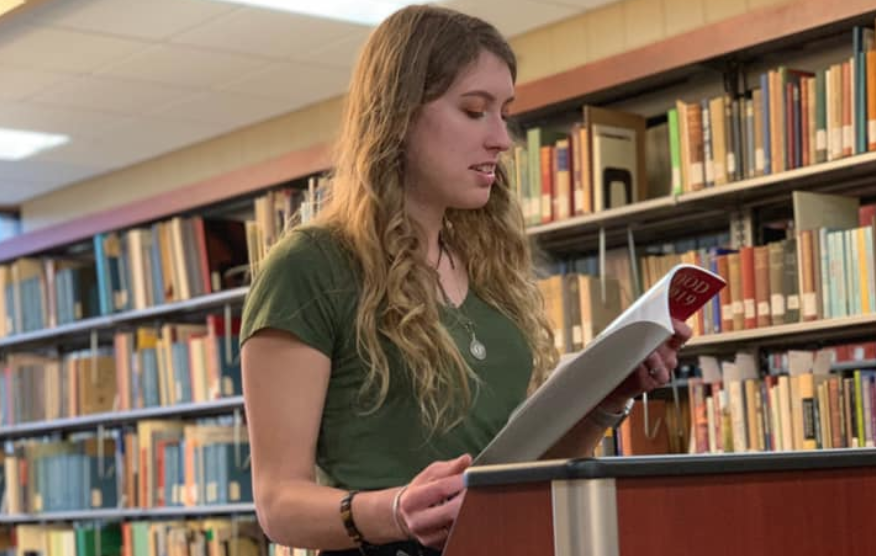English Department highlights Midwestern art
April 25, 2019
Don’t overlook the Midwest—there’s a lot going on, especially with art.
Take it from the South Dakota State English Department as it celebrated local Midwestern writers and artists this week by launching Oakwood, South Dakota State’s literary magazine and hosting a reading of an English professor’s first-ever published novel.
Students work as contributors and literary editors of Oakwood. It provides students experience in editing and publishing as they sift through and edit more than 200 submissions of poetry, prose and art.
“There were a lot of similar themes like bees, plains and farming,” said Mariah Macklem, an English major who worked with the poetry editing team.
Showcasing local talent through Oakwood is important, according to Macklem, because it centers Midwestern authors and artists that can be disregarded to the Great Plains’ status as a “fly-over” area of the United States.
Rachel Funk, a recent graduate of SDSU, has been published in Oakwood twice before. This year, Funk had two pieces accepted: “Potential Energy” and “Legs.”
“This was the most visceral reaction to stuff [I submitted],” Funk said. “I was not prepared for how excited the editors were for my work.”
Earlier in the week professor Steven Wingate’s reading of his novel “Of Fathers and Fire.”
It was inspired by his move from New Jersey to the plains of Colorado when he was 13 years old. The themes came from Wingate’s personal “wrestling match” between him and Midwestern culture and personalities.
“I remember being freaked out by the weird animals outside like cows and horses,” Wingate said. “But there I was, a kid from New Jersey, where everyone was Catholic or Jewish or had a relative who came off the boat. I was deeply concerned by what I heard on the radio in Colorado Springs… The hate.”
When he wrote the book, Wingate did not want to create an idealized version of the Great Plains. To Wingate, great literature comes out of addressing social issues rather than sweeping them under the rug.
“Anyone who has written knows they [stories] are good at sitting in a binder for years and then calling to you,” Wingate said. “They call to you, saying ‘I’m here and you’ll spend a lot of time on me but never figure me out.’”
Published work is extremely important, according to Funk, from a “boost for confidence” and connection.
“I’m so glad this Oakwood is popular and prolific, and I want it to keep going,” she said. “It’s how you find local authors, photographers and gets people exposed to literature and art.”
























